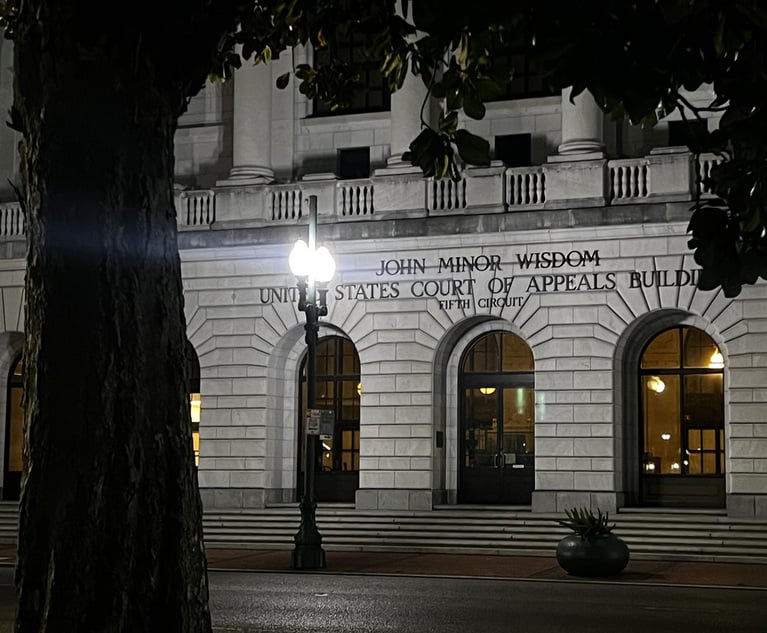Features

EU Antitrust Strategy Faces U.S. Pushback as Regulatory Tensions Rise Over Big Tech
With tech giants’ influence on the White House on the rise, the likelihood of U.S. retaliation in response to enforcement of both longstanding EU antitrust rules and newer digital regulations has grown. At the same time, the EU’s own stated desire to cut red tape has raised existential questions about the future of the EU as a global regulatory superpower whose laws are emulated by nations and adhered to by companies around the world.
Features

FOIA In 2025: Beat the Backlog and Avoid Lawsuits
The Freedom of Information Act (FOIA) stands at a critical juncture heading into 2025. Federal agencies are grappling with mounting backlogs, increasingly complex data landscapes, and rising cybersecurity threats. As a new administration takes office, the urgency to adopt innovative, effective solutions has never been greater.
Features

Planning for the Regulation and Enforcement of Privacy, Cybersecurity, and Advanced Technologies In 2025
While change is a constant in the privacy, security and technology arena, 2025 is poised to be a landmark year. New technologies will continue to radiate through the economy — and our lives — while the new Trump Administration is likely to emphasize innovation over protection, reward maximization over risk minimization, and incentivizing over enforcing.
Features

Have Corporate DPAs Become Less Certain and Beneficial After Boeing?
Corporate deferred prosecution agreements (DPAs) have become a key part of white-collar criminal enforcement. Once seen as an efficient and definite way to resolve an investigation, have corporate DPAs become less certain and beneficial over time?
Features

Mitigating AI Risk In Light of Increasing Regulatory and Shareholder Scrutiny
Driven by promises of increased efficiency and innovation, companies spanning a wide variety of industries are rapidly adopting and investing in artificial intelligence (AI). The explosion of interest in AI has also spurred the attention of the SEC and private shareholder plaintiffs. Companies should continue to closely consider their public statements related to AI and implement appropriate precautions when discussing their AI initiatives.
Features

Fifth Circuit Weighs In On Constitutionality of the Corporate Transparency Act
Events have moved swiftly and symptomatically lately in the Fifth Circuit. Long known as the circuit with the greatest skepticism of federal regulation of the economy, it turned its attention to the Corporate Transparency Act, which requires non-exempt companies to report the identity of their beneficial owners.
Features

Third Circuit Orders SEC to Clarify How Securities Regs Apply to Digital Assets
In a 72-page opinion, the U.S. Court of Appeals for the Third Circuit directed the Securities and Exchange Commission (SEC) to clarify for Coinbase Global Inc. “how and when the federal securities laws apply to digital assets” like cryptocurrencies and tokens.
Features

Does Your Corporate Compliance Program Reasonably Prevent Fraud? New UK Guidance Demands It
This article first discusses the legal backdrop of the UK’s new strict liability law and then summarizes what companies need to know about the new UK guidance, with particular emphasis on the areas where it expands on the ECCP.
Features

Avoiding Legal Risks: Crafting a Strong Do Not Call Policy for TCPA Compliance
Ensuring robust DNC compliance protects an organization's reputation and increases consumer trust. Below is a practical guide for building and implementing DNC policies that ensure compliance and reduce liability.
Features

Potential Antitrust Risks When Using AI-Driven Pricing Tools
Companies need to seriously consider the potential antitrust risks when using AI-driven or algorithmic software-based third-party services for things such as pricing or inventory management. These tools can increase efficiency, but, depending on specifics, can also lead to serious antitrust risks.
Need Help?
- Prefer an IP authenticated environment? Request a transition or call 800-756-8993.
- Need other assistance? email Customer Service or call 1-877-256-2472.
MOST POPULAR STORIES
- Use of Deferred Prosecution Agreements In White Collar InvestigationsThis article discusses the practical and policy reasons for the use of DPAs and NPAs in white-collar criminal investigations, and considers the NDAA's new reporting provision and its relationship with other efforts to enhance transparency in DOJ decision-making.Read More ›
- Challenges In Being a Pro Sports General CounselBeing a general counsel for a professional sports team is a coveted gig, but it's also a job with unique challenges, potential ethical minefields and scandals lurking around the front office, field, stadium and elsewhere.Read More ›
- The DOJ's Corporate Enforcement Policy: One Year LaterThe DOJ's Criminal Division issued three declinations since the issuance of the revised CEP a year ago. Review of these cases gives insight into DOJ's implementation of the new policy in practice.Read More ›
- The DOJ's New Parameters for Evaluating Corporate Compliance ProgramsThe parameters set forth in the DOJ's memorandum have implications not only for the government's evaluation of compliance programs in the context of criminal charging decisions, but also for how defense counsel structure their conference-room advocacy seeking declinations or lesser sanctions in both criminal and civil investigations.Read More ›
- Practice Tip: The Earning Capacity of Business OwnersThe owner of a business can claim as lost earning capacity in a personal-injury action only the working time lost due to injuries and harm to future earning capacity, not the business' alleged profits in perpetuity.Read More ›
